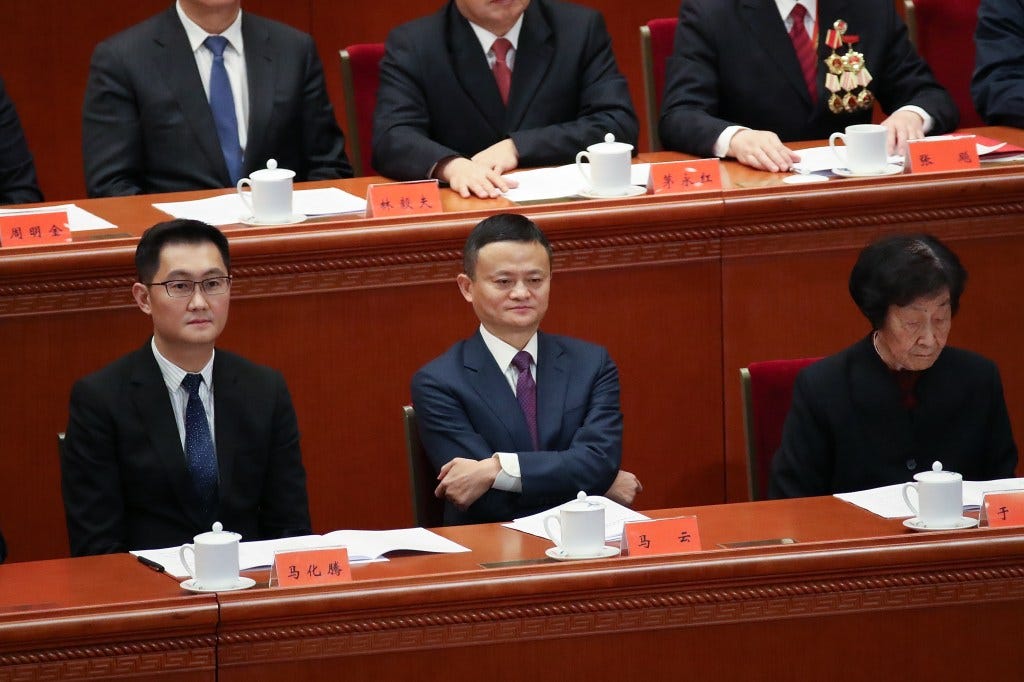The following is a guest column from , a longtime reporter formerly at TechCrunch.
Recently, I met a Chinese entrepreneur pitching his AI startup to TechCrunch. As the only writer focused on China at the site for five years, I’ve been the go-to for all China-related stories. I asked for a call, but the founder backed out last minute, worried that my byline would make his company appear “too Chinese.”
The company had already done much in pursuit of geographic ambiguity: it’s registered in Delaware and targets mostly the US market. But there’s a catch: it operates from both Shanghai and California, and the co-founders are Chinese citizens.
I was disappointed at missing out on an up-and-coming company, but more troubling was my realization that he was probably right. An article by me — the Chinese face for TechCrunch (despite my coverage of many global stories) — might spoil the startup’s effort to obscure its origins. In today’s geopolitical climate, any mention of China could unfairly prejudice a startup’s chances, even while I’m simply doing my job as a journalist to disclose all relevant facts.
Changing perception
Over the last two years, my China tech beat has drifted far away from its original form.
During China’s tech boom of the previous decade, Western reporters in China wrote with curiosity, empathy, and a necessary dose of skepticism about the country’s historically opaque business environment. American venture capital was flooding into China when I started covering the sector in 2017. Chinese tech stocks listed in New York were investor darlings. Silicon Valley’s tech workers marveled at China’s mobile internet and the speed with which new tech developed.
It was an exciting and rewarding time for tech reporters, who enjoyed both an eager Western audience and open-minded local sources. Journalists, myself included, competed to break stories on future unicorns. And staff from these fast-growing firms were keen to see foreign media hold their employers accountable.
My analysis of business models like WeChat’s mini apps or Pinduoduo’s social commerce sometimes drew hundreds of thousands of views. Chinese firms proudly touted their “China edge” — affordable engineers, a hardworking culture, and a robust supply chain — as they pitched foreign investors.
Then in 2019, the mood shifted. Trust between Chinese entrepreneurs and foreign press waned amid escalating US-China tensions. Washington added Huawei and its affiliates to the Entity List, barring them from access to US technologies. Panic spread among Chinese firms reliant on the US for tech, funding, and market expansion. The “Chinese” label took on renewed negative connotations.
The view that Chinese tech was accompanied by national-security risks wasn’t new, but ongoing geopolitical tensions intensified it. As Western scrutiny grew, Chinese firms became wary of their association with home and sought to obscure their roots. This posed unprecedented challenges to my coverage.
Domestic crackdown
Western hostility against Chinese firms grew at the exact time that they most needed to accelerate their global expansion. Growth at home was suddenly and violently halted in late 2020 when the Beijing government initiated a wave of crackdowns on the tech industry. Ant Group — Jack Ma’s fintech empire — was the first to be caught in the crosshairs. Regulators pressed on by squeezing the ride-hailing giant Didi, the whole online education sector, and the video-game industry.

VC funding dried up, and tech giants decided to lay low. HongShan 红杉 (formerly Sequoia Capital China), funneled about $31 billion into 354 companies in 2021; in 2023, the investor deployed only $4.17 billion to 86 firms, per data from PitchBook. As a result, my daily routine went from uncovering key decisions at large tech companies and identifying promising underdogs to monitoring regulatory websites for policy shifts that could cripple another segment of the industry.
Regulations are crucial news, but over time they become repetitive and demoralizing. To do my job, I tried to explain the broader impact of changing regulations to readers, but I quickly became jaded with the staleness of the legalities. I had to find a new area with more action — and I saw the best opportunities outside China.
The globalizing years
Chinese tech firms have a history of global influence, from video games to e-commerce and hardware. Competition in the domestic market is cutthroat, but the country’s cost advantage, large talent pool, and supply-chain resources offer an edge over foreign companies.
In 2020, I started following globalizing Chinese founders more closely. Companies like Shein and TikTok were taking off internationally. Many other firms followed their path. Amid China’s tech crackdown, sluggish economic growth, and pandemic lockdowns, these firms were seeking opportunities overseas just like I was. I found myself a new, exciting beat.

But the thrill was short-lived. One evening in late 2020, a startup I had covered called me to request that I remove all mentions of China from my article. Instead, they wanted to be known as a “global” company. Granted, it had a small team of marketing and R&D staff in Silicon Valley, but the majority of its engineers were in China. It had the typical Variable Interest Entity (VIE) structure, with an offshore entity controlling its Chinese operations. It’s a classic setup used by tech startups to circumvent China’s restrictions on foreign investment.
The company argued that, since it had a team in Silicon Valley, it shouldn’t be called “Chinese.” I countered with examples like Alibaba and Tencent, which have long kept a presence in the US, yet disclosed the Chinese identity of their offshoots. I asked the startup to respect my editorial independence. I never heard from them again.
Reckoning
My self-righteousness soon fell apart following another such incident. One day in late 2021, I got a message from a founder asking me to remove “Chinese” from a few old stories I had written, fearing the description would scare off American customers. That was when I realized: I could harm young startups just by doing my job.
When I covered the company, it was based in China. Its story is fairly typical: after gaining experience in Silicon Valley, the Chinese founder returned home to start an AI business, hoping to ride China’s tech boom. His pursuit crashed right into the onset of the pandemic and China’s tech crackdown, so he pivoted to focus on the US instead. That strategic shift was met with another stumbling block — rising Western scrutiny over Chinese tech.
To assuage concerns from his clients, the company adopted “de-China” tactics: redomiciling overseas, relocating the management team abroad, selling shares held by Chinese investors, and even changing the founders’ nationality. Aside from the problem that such measures shouldn’t be necessary for an average startup, the question of when a company truly qualifies as non-Chinese is often a subjective judgment left to the journalist to make.
Many Chinese-founded startups I subsequently featured began asking me to downplay their Chinese ties. I was stuck between a rock and a hard place. I couldn’t unlearn the Chinese stories crucial to their success, nor abandon journalistic principles — but I could see the harm arising from discussing them in detail.
I felt increasingly conflicted. The stories I wanted to tell — about their upbringing, overseas education, investor network, engineering talent, and work ethic — were all tied to their Chinese background. But these became taboo topics that could unfairly subject them to scrutiny from foreign governments over alleged national-security threats.
Capturing the China edge was my job, but as Western suspicions grew, China’s strength had become a double-edged sword. A frustrated Chinese entrepreneur once confided in me, “We work for no government. We just want to build businesses.” But amid the Sino-American battle for technological supremacy, this apolitical mindset now seems unrealistic.
I still wanted to tell their stories, so I started a podcast to talk about Chinese founders, as well as founders from other underreported regions. The podcast focuses on how globalizing entrepreneurs traverse borders without labeling their nationality.
The fact is, many of these founders have lived in multiple countries, their operations are global, and their investors are from around the world. Traditional media, with little room or patience for their backgrounds, often fails to tell the full and fair stories.





“We work for no government. We just want to build businesses.”
That may be their sentiment, but not their reality. The CCP has their fingers, or more, in all Chinese companies of any consequence. I’ve seen it first hand too many times.
Rita, it might be worth pivoting your focus to how companies navigate increasing geopolitical tensions and the potential fragmentation of world trade and technology. This would be a fascinating and relevant topic, now and in the future. The old model of Chinese companies leveraging their advantages to go global no longer works due to these tensions, so I think your focus should change as well